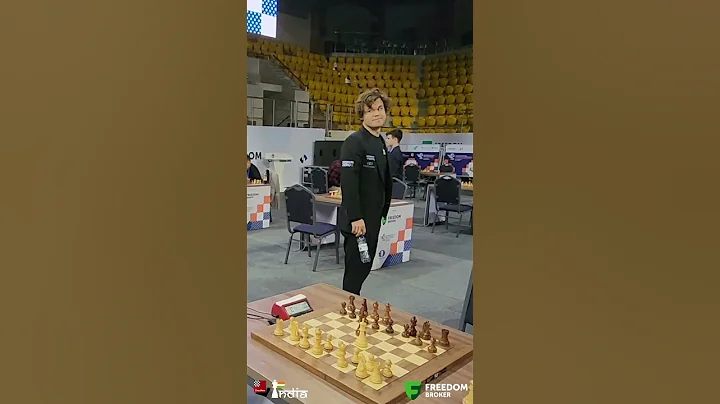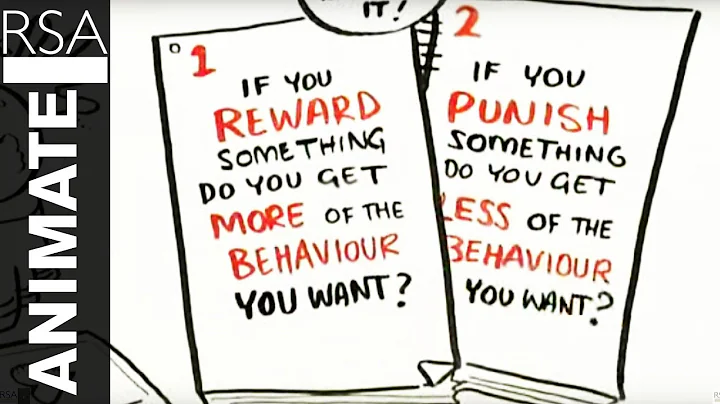
Children are always learning, using gifts or even materials to motivate children, but the effect may not be good... Countless parents are very diligent in motivating children to learn actively, but improper methods will only get half the result. Today I will share two cases, hoping to inspire everyone.
▋What kind of motivation is used is something later, but the key is to "give it to"
immediately. "When you get the first place, we will go traveling!" "As long as you behave well, I will buy you what you want on your birthday. A game console!"...Many parents like to promise the "future", but their children don't want this.
This is because human nature has a characteristic-pay attention to the immediate interests. Even after calm thinking, people will still choose the immediate interests and the satisfaction of the moment compared to a very good choice in the future. There is a very famous experiment in
. For example, today, you tell your children that during the Chinese New Year this year, I will give you a red envelope of 500 yuan, but if you are willing to wait for a week, I will give you a red envelope of 550 yuan—— At this time, the child will think, just bear with it for a week, and get an extra 50 yuan. It feels good! Anyway, it was something that happened half a year later, it didn't matter to wait another week, so he gladly accepted this condition.
But if you change the scene, if the child is celebrating his birthday tomorrow, you give the child 500 yuan in pocket money, and then you propose this condition, the child is not willing to-he hopes to get this satisfaction immediately, so He will give priority to the choice and take the 500 yuan first.
This is a very famous experiment. Interested parents can test their child to see his true reflection. In summary, even if the child understands that I want to have a very good future and I must study hard now, he still can’t help but want to play, to satisfy the happiness of the moment, he will leave learning behind, thinking in his heart—— It’s fine to study tomorrow, not bad for a day or two.

Procrastination like this is not limited to children. Many adults also have them. For example, they know that it is time to lose weight, but lose to the temptation to eat and drink. Or he knew that he wanted to quit smoking, but couldn't help but go to a corner to take a sip.
In other words, as long as the reward is placed in front of the child and the current incentives for learning are improved, the child will give priority to current efforts. We call this kind of inducement "the carrot before the horse". We hope that parents understand this characteristic, understand this truth, and how to make children study hard immediately without further delay in the future. Of course, what kind of incentives are also very important, and it is also important to avoid “getting the right inch”.
▋High scores will be rewarded! This kind of promise will do more with less effort
Another more common motivation method is "reward for high scores on the test", but compared to "reward for you after reading a book", what kind of incentive do you think can really improve your child? What about your learning ability?
Professor Fryer of Harvard University once did such an experiment, dividing approximately 36,000 students from 250 elementary schools from grade two to grade three in middle school into two groups for a comparative study. Children in the first group received "output rewards", such as high scores in the test, first place in the competition, etc., and the other group of children received "input rewards", such as finishing a book and going to school on time , Do the questions carefully, you can get rewards. Although
has shown enthusiasm and joy for children in different experiments, as a result, children who are rewarded by reading will have a significant improvement in performance. The students who were rewarded with high scores on the exam did not improve at all. The conclusion

is a bit unexpected. In fact, the key to this experiment is to test children's actions and reactions to rewards. You will be rewarded after reading a book. For a child, the action is very clear. As long as you read the book, as long as you do the questions, you will be rewarded. On the contrary, the high score in the test is rewarded, but the child is not told how to do it. method. Although the child is also full of enthusiasm, he doesn't know what to do and can't start. Professor Z4z
Fryer conducted a questionnaire after the experiment and interviewed the students in the group of "high scores and rewards". He found that almost all children's attitudes towards learning have become "I want to read the questions carefully" and "I want to "Careful inspection" and other reflections around examination techniques, without"Ask the teacher for questions you don't understand", "Listen carefully in class", "Read more" and other fundamental reasons for improving your performance.
Therefore, when rewarding children, parents should pay attention to rewarding children's investment, not rewarding children's achievements after learning, so that it is possible for children to value and enjoy the learning process.

▋After middle school, it is more suitable to directly use money to motivate
So, if you often reward children, will they lose the fun of learning?
This is a very good question. There is a term in economics called "external inducement". Rewarding children to learn is an external inducement. Many parents worry about using this external inducement frequently. Although it can successfully make children willing to learn in a short time, it is In the long run, I can't help but worry about whether the child will blur the purpose of learning and lose the joy of learning.
Actually, there are cases where external incentives squeeze out internal incentives, such as donating blood for money, but blood donors have decreased. Because after using external incentives such as money, the internal incentives to donate blood to give back to the society disappeared, we must pay attention to this point, otherwise it will easily turn the cart before the horse. However, in the comparative experiment conducted by Professor Fryer of Harvard University, there are still differences. Observed the rewarded experimental group and the unrewarded control group. The result is that the rewarded children did not lose the fun of reading, and their internal drive remained strong.

Then let's continue to extend this topic, can we use money for rewards? The answer to
is yes, but age should be distinguished. Stephen, the author of "Apple Orange Economics" and a professor at the University of Chicago, also did a comparative experiment. He replaced the bonus with a trophy. As a reward for children's study, the price of the trophy is not expensive, about 100 yuan, but For elementary school students, the same amount of trophy is more motivating than money. From this experiment, it can be concluded that when children are young, they may wish to use something other than money as a reward, such as rewarding a trophy and awarding a medal to motivate the child.
But for children above junior high school and high school, the effect of money may be better. I believe that many parents hesitate to give money, but I think there is no problem as long as the money is given correctly. The basis for supporting this argument is also from the results of a questionnaire conducted after another experiment by Professor Fryer-children who get money, not only did not waste it, they felt that the money was indeed hard-won, but would reduce their entertainment The expenses of game snacks and clothes have become more cherished.
It should be noted that there is no problem with materially motivating children. But at the same time, it is more important to teach children the correct outlook on wealth, such as opening a bank account, developing a good habit of bookkeeping, and cultivating the spirit of contract. In many cases, parents and friends do need to update their views on some things, and don't blindly deny monetary rewards. Coins have two sides, the key is how to guide them.





















